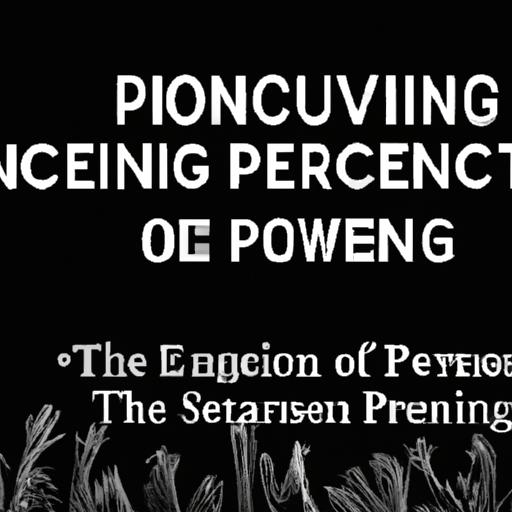Challenging the Illusion of Government Authority
In a world where authority often goes unquestioned, the pursuit of a voluntary society stands as a beacon for those seeking genuine equality and justice. The fundamental principles of honesty, non-harm, and fair treatment should be universal, yet they are frequently violated by those in power. This blog post delves into the core ideas of dismantling governmental authority, fostering a community based on voluntary cooperation, and awakening society to the realities of coercion and manipulation. By exploring these concepts, we aim to inspire a movement towards a more equitable and just world.
The Core Principles of a Voluntary Society
At the heart of a voluntary society lie three fundamental principles that should come naturally to every individual:
- To Live Honestly: Integrity and truthfulness are non-negotiable. Honesty forms the foundation of trust and cooperation, essential for any community to thrive.
- To Hurt No Man or Woman Willfully: Non-aggression is a cornerstone of peaceful coexistence. Respecting each other's rights and well-being ensures harmony and reduces conflict.
- To Render to Every Man His Due Carefully: Fairness and justice require that everyone receives what they rightfully deserve without bias or favoritism.
These principles are universal and apply to everyone, yet they are often disregarded by those who wield power, particularly governments. This violation of basic ethics undermines the very fabric of society, leading to corruption, inequality, and injustice.
The Illusion of Governmental Authority
Governments present themselves as the ultimate authority, asserting invincibility through titles and perceived legitimacy. However, this authority is often a facade, masking the coercion and manipulation that sustain it. Governments, in essence, are groups of individuals who demand compliance and financial contributions under the guise of public service.
The Myth of Invincibility
The notion that government officials are above the law is unfounded. Their power does not stem from inherent legitimacy but from collective acceptance and enforced compliance. When we challenge this belief, we begin to see that governments are not special entities but composed of ordinary individuals who can be held accountable.
Coercion and Manipulation
Governments frequently use coercive methods to extract taxes and enforce laws, often benefiting a select few at the expense of the majority. This coercion is disguised as necessary for public good, but it frequently results in the loss of personal freedoms and financial burdens on the populace.
Toward a Voluntary Society
A voluntary society is one where interactions and transactions are based on mutual consent and respect, free from coercion and manipulation. Achieving this requires a collective effort to uphold the fundamental principles of honesty, non-harm, and fairness for all.
Equality and Fairness for Everyone
In a voluntary society, every individual is treated equally, and the basic principles of right and wrong are applied universally. This ensures that no one is above the law and that all actions are guided by ethical considerations rather than power dynamics.
Eliminating Restrictions and Harms
A voluntary society minimizes restrictions that cause harm, loss, or damage to individuals. By fostering an environment of cooperation and mutual respect, the need for coercive laws and regulations diminishes, allowing for a more harmonious coexistence.
Challenging the Status Quo: Awakening Society
One of the most significant challenges in creating a voluntary society is awakening individuals to the realities of governmental coercion and manipulation. This requires critical thinking and questioning of long-held beliefs about authority and governance.
Encouraging Critical Questions
To break free from the illusion of government authority, it's essential to ask probing questions such as:
- Why do you believe what you believe?
- Why do you think the representatives of the state are more than just individuals enforcing laws?
- Where does their power or authority truly come from?
- Why do you believe that because they call themselves “government,” their rules do not apply to them, whereas they apply to the rest of us?
These questions challenge the foundational beliefs that sustain governmental authority and encourage individuals to seek evidence and form their own conclusions.
Exposing the Reality
Most people perceive their relationship with the government as part of a voluntary social contract, unaware of the coercive underpinnings that maintain this system. By presenting evidence and fostering discussions, we can help others recognize that the government operates more as a coercive entity than a representative body genuinely working for the public good.
The Role of Education and Community
Education and community support are pivotal in transitioning towards a voluntary society. By educating ourselves and others about the true nature of governmental authority, we can build a network of informed individuals committed to upholding the core principles of a voluntary society.
Educating Yourself and Others
Understanding the mechanics of governmental authority and the principles of voluntary cooperation is the first step toward meaningful change. This involves studying legal documents, historical contexts, and philosophical foundations that support the idea of a voluntary society.
Building a Supportive Community
Creating a community of like-minded individuals strengthens the movement towards a voluntary society. By sharing knowledge, experiences, and strategies, we can collectively challenge the existing system and advocate for change.
Overcoming Resistance and Building Momentum
Change is often met with resistance, especially when it challenges deeply entrenched systems of power. However, by persistently advocating for a voluntary society and demonstrating the benefits of such a system, we can gradually build momentum and inspire widespread adoption.
Addressing Common Objections
People may resist the idea of a voluntary society due to fears of anarchy or loss of order. It's crucial to clarify that a voluntary society does not equate to chaos but rather to a community governed by mutual respect, ethical principles, and voluntary cooperation.
Demonstrating Practical Benefits
Highlighting the practical advantages of a voluntary society, such as increased personal freedom, financial autonomy, and genuine equality, can help alleviate fears and garner support. Real-life examples and success stories can illustrate how these principles can lead to a more just and harmonious society.
Taking Action: Steps Toward a Voluntary Society
Transitioning to a voluntary society requires deliberate actions and sustained effort. Here are some steps individuals can take to contribute to this transformative journey:
1. Question and Educate
Begin by questioning the legitimacy of governmental authority and educating yourself about the principles of a voluntary society. Engage in discussions, attend seminars, and read literature that challenges conventional beliefs about governance and authority.
2. Advocate for Change
Use your voice to advocate for the principles of a voluntary society. Share information, participate in community discussions, and encourage others to question and seek the truth about governmental authority.
3. Build a Network
Connect with like-minded individuals who are also committed to creating a voluntary society. Building a strong network provides support, resources, and collective strength to challenge the existing system.
4. Promote Ethical Principles
Uphold and promote the fundamental principles of honesty, non-harm, and fairness in your daily interactions. By embodying these values, you set an example for others and contribute to a culture of mutual respect and cooperation.
5. Engage in Constructive Actions
Participate in actions that promote the transition to a voluntary society, such as supporting policies that reduce government intervention, advocating for financial autonomy, and encouraging voluntary cooperation in community projects.
Conclusion: A Call to Action
The pursuit of a voluntary society is not merely an abstract ideal but a tangible goal that requires collective effort and unwavering commitment. By challenging the illusion of governmental authority, upholding fundamental ethical principles, and fostering a supportive community, we can work towards a world where every individual is treated with equality and respect.
The journey may be arduous, but the rewards of genuine freedom, personal autonomy, and a just society are well worth the effort. Let us awaken to the realities of coercion and manipulation, educate ourselves and others, and take decisive action to build a better, more equitable world for all.
Together, we can dismantle the corrupt systems that bind us and pave the way for a future defined by voluntary cooperation, mutual respect, and true freedom. Start today by questioning, educating, and advocating for the principles that will lead us to a voluntary society where everyone can thrive without coercion or injustice.




Responses